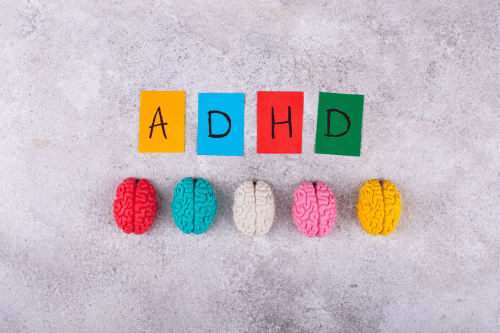Types of Neurodivergence
Introduction
Neurodivergence refers to the natural variations in the way the human brain works, influencing thinking patterns, emotional responses, and behaviors. Recognizing these differences is essential to promoting acceptance and creating spaces where individuals with neurodivergent traits can thrive. At adolescent mental health, we understand that neurodivergence is not a defect but a reflection of the diverse ways brains function. This article provides a detailed look at various types of neurodivergence, explaining how they shape people’s lives, challenges, and strengths.
Embracing neurodiversity offers individuals the opportunity to lead fulfilling lives by developing environments tailored to their unique needs. From autism spectrum disorders to executive function dysregulation disorder, this guide will explore the wide range of neurodivergent conditions. Understanding these differences is a step toward inclusive mental health care that empowers individuals to grow.
Understanding Neurodiversity
Definition of Neurodiversity
Neurodiversity refers to the natural variations in human brain function, encompassing a wide range of cognitive, emotional, and behavioral differences. It acknowledges that brain differences are a natural part of human diversity, rather than a disorder or defect. Neurodiversity includes conditions such as Autism Spectrum Disorder (ASD), Attention Deficit Hyperactivity Disorder (ADHD), Dyslexia, and many others. By recognizing these differences, we can create a more inclusive society that values the unique contributions of neurodivergent individuals.
What Does Neurodivergence Include?
Neurodivergence is an umbrella term encompassing multiple neurological differences that affect behavior, learning, and emotional regulation. Though often associated with challenges, neurodivergent conditions also present opportunities for unique strengths such as pattern recognition and enhanced creativity. Below are several of the most common and relevant neurodivergent conditions.
1. Attention Deficit Hyperactivity Disorder (ADHD)

Attention deficit hyperactivity disorder (ADHD) is a neurodevelopmental condition that affects an individual’s ability to focus, stay organized, and regulate impulses. ADHD can present in multiple ways, including inattentive, hyperactive, or combined presentations. Individuals with ADHD often struggle with executive function dysregulation disorder, making it difficult to complete tasks, meet deadlines, or stay on top of routines.
Managing ADHD typically requires behavioral therapy, medication, and lifestyle adjustments tailored to the individual’s needs. A supportive environment is essential for helping children and adults with ADHD develop coping strategies.
2. Autism Spectrum Disorder (ASD)
ASD encompasses a range of spectrum disorders, meaning that it manifests differently across individuals. Pervasive developmental disorder was previously used as a subtype of autism but is now incorporated under the broader classification of autism spectrum disorder. Autistic people generally exhibit repetitive behaviors, sensory sensitivities, and challenges in social interaction. Some individuals with ASD show significant abilities in intense interests and pattern recognition, which can become strengths when properly supported.
Providing tailored educational strategies and creating sensory-friendly spaces are essential components in promoting the well-being of those on the autism spectrum. Embracing neurodiversity ensures that individuals with ASD receive the acceptance and understanding they need to flourish.
3. Obsessive-Compulsive Disorder (OCD)

OCD is a mental health condition marked by intrusive thoughts and the need to perform repetitive movements or rituals to relieve anxiety. These compulsions often interfere with daily activities, leading to significant stress. Managing OCD requires understanding both the behavioral and emotional aspects of the condition, as it frequently intersects with other mental health challenges.
Creating awareness about OCD helps foster understanding of how individuals process intrusive thoughts and engage in behaviors to cope. Therapy, particularly cognitive-behavioral approaches, plays a crucial role in managing the condition.
4. Developmental Coordination Disorder (DCD)
DCD, or dyspraxia, affects motor skills, making it difficult for individuals to perform tasks that require fine motor skills and gross motor skills. People with DCD often struggle with coordination, which can lead to difficulties in social interaction or participation in physical activities.
Children with DCD benefit from physical therapy and occupational therapy, where they learn techniques to improve their motor coordination. With the right interventions, individuals with DCD can enhance their ability to manage day-to-day activities effectively.
5. Bipolar Disorder

Bipolar disorder involves shifts between manic and depressive episodes, affecting emotional regulation and behavior. During manic phases, individuals may feel euphoric, experience racing thoughts, and engage in risky behavior. In depressive phases, they may struggle with low energy, hopelessness, and withdrawal from activities.
Collaborating with healthcare providers ensures that individuals with bipolar disorder receive appropriate treatment, including medication and therapy, helping them manage their symptoms and maintain balance in their lives.
6. Sensory Processing Disorder (SPD)
SPD impacts the way individuals respond to sensory input from their environment. People with SPD may either be overly sensitive or under-responsive to sensory stimuli, making it challenging to navigate daily environments. This can affect various aspects of life, including speech difficulties, coordination, and social interaction.
Tailored interventions and sensory-friendly spaces are critical in supporting individuals with SPD, helping them better manage their sensory experiences and thrive.
7. Tourette Syndrome
Tourette syndrome is a neurological condition characterized by involuntary tics, which may include both motor and vocal movements. These repetitive behaviors can sometimes be disruptive but do not affect intelligence or cognitive ability.
Creating awareness about Tourette syndrome allows individuals to develop better strategies for processing information and managing their tics, especially in stressful or exciting situations. With appropriate support, people with Tourette syndrome can thrive in school, work, and social settings.
8. Borderline Personality Disorder (BPD)
Borderline personality disorder (BPD) is marked by instability in emotions, relationships, and self-identity. Individuals with BPD may experience intense emotions and struggle with maintaining stable interpersonal relationships. This condition often intersects with other mental health conditions, necessitating therapy and tailored strategies to build emotional resilience.
Incorporating mental health interventions that focus on emotional regulation helps individuals with BPD develop healthier coping mechanisms. Support from family, friends, and professionals is crucial for recovery and well-being.
9. Acquired Brain Injuries
Acquired brain injuries refer to damage to the brain caused by trauma, infection, or other health issues. These injuries can affect cognitive functioning and alter how the brain works. Individuals recovering from brain injuries may experience challenges in speech, movement, or emotional regulation, depending on the area of the brain affected.
Therapeutic interventions and ongoing care are essential for individuals with acquired brain injuries, helping them regain functionality and rebuild their lives.
10. Learning Disabilities
Learning disabilities are neurodivergent conditions that affect how individuals process information, making it difficult for them to excel in traditional academic settings. These disabilities can impact reading, writing, and math skills, leading to frustration and lower self-esteem. Educational support from occupational therapists and educational psychologists is critical in helping individuals overcome learning challenges and achieve success.
Dyslexia
Dyslexia is a neurodivergent condition that affects an individual’s ability to read and process written language. It is not a result of poor intelligence or lack of effort, but rather a difference in how the brain processes information. Dyslexic individuals may experience challenges with phonemic awareness, decoding, and fluency, but they often possess strengths in areas such as creativity, problem-solving, and critical thinking. Understanding dyslexia involves recognizing these brain differences and providing tailored educational strategies to support dyslexic individuals in their learning journeys.
11. Pervasive Developmental Disorders (PDD)
PDD is a group of conditions, including autism and Asperger’s syndrome, that impact communication and social interaction. Though the symptoms of PDD can present differently in each individual, early diagnosis and intervention can significantly improve outcomes. With the right support, individuals with PDD can develop essential life skills and participate meaningfully in their communities.
12. Executive Function Disorder (EFD)
Executive Function Disorder (EFD) is a neurodivergent condition that affects an individual’s ability to plan, organize, and execute tasks. It is often characterized by difficulties with time management, self-regulation, and working memory. EFD can impact daily life, making it challenging to complete tasks, meet deadlines, and maintain relationships. However, with the right support and accommodations, individuals with EFD can develop strategies to overcome these challenges and thrive.
Individuals with EFD may experience difficulties with:
Planning and organization: struggling to break down tasks into manageable steps, creating schedules, and setting priorities.
Time management: difficulty estimating time required for tasks, procrastination, and meeting deadlines.
Self-regulation: challenges with self-monitoring, self-control, and emotional regulation.
Working memory: difficulties with retaining and retrieving information, following instructions, and completing tasks.
Despite these challenges, individuals with EFD often possess strengths in areas such as creativity, problem-solving, and critical thinking. With the right support and accommodations, they can develop strategies to overcome their challenges and achieve their goals.
It’s essential to recognize that EFD is not a result of laziness or lack of motivation, but rather a difference in how the brain functions. By acknowledging and accepting these differences, we can create a more inclusive and supportive environment for individuals with EFD and other neurodivergent conditions.
Why Embracing Neurodiversity Matters
Embracing neurodiversity helps society move beyond outdated stereotypes and recognizes the value in neurological differences. Neurodivergent individuals often display unique talents such as enhanced creativity, strong spatial awareness, and pattern recognition. By creating a supportive environment, we can help neurodivergent people reach their potential and contribute to society.
A shift in perspective—from focusing on deficits to highlighting strengths—allows neurodivergent people to overcome challenges. Schools, workplaces, and communities that offer tailored strategies foster acceptance and provide opportunities for personal growth.
Supporting Neurodivergent Individuals
Collaboration between families, educators, and healthcare providers is crucial in supporting neurodivergent individuals. Customized therapies, sensory accommodations, and educational support systems are essential components of an inclusive framework. Encouraging self-advocacy and providing resources tailored to individual needs empower neurodivergent people to thrive.
Support networks that understand the importance of embracing neurodiversity help individuals feel valued and accepted. It is essential to offer tailored strategies to address the specific needs of each neurodivergent condition, whether it involves therapy, medication, or environmental accommodations.
Conclusion
Neurodivergence is a broad concept that includes various conditions such as ADHD, autism spectrum disorder, bipolar disorder, and learning disabilities. Each condition presents unique challenges and opportunities, reflecting the vast diversity of ways that brains function. At adolescent mental health, we believe in embracing neurodiversity by creating environments that support the mental and emotional well-being of neurodivergent individuals.
Understanding the types of neurodivergence helps break down stigmas and promotes acceptance. If you or someone you know is affected by neurodivergent disorders, reach out to our team at adolescent mental health for expert guidance and support. Together, we can foster a world where everyone has the opportunity to thrive.









